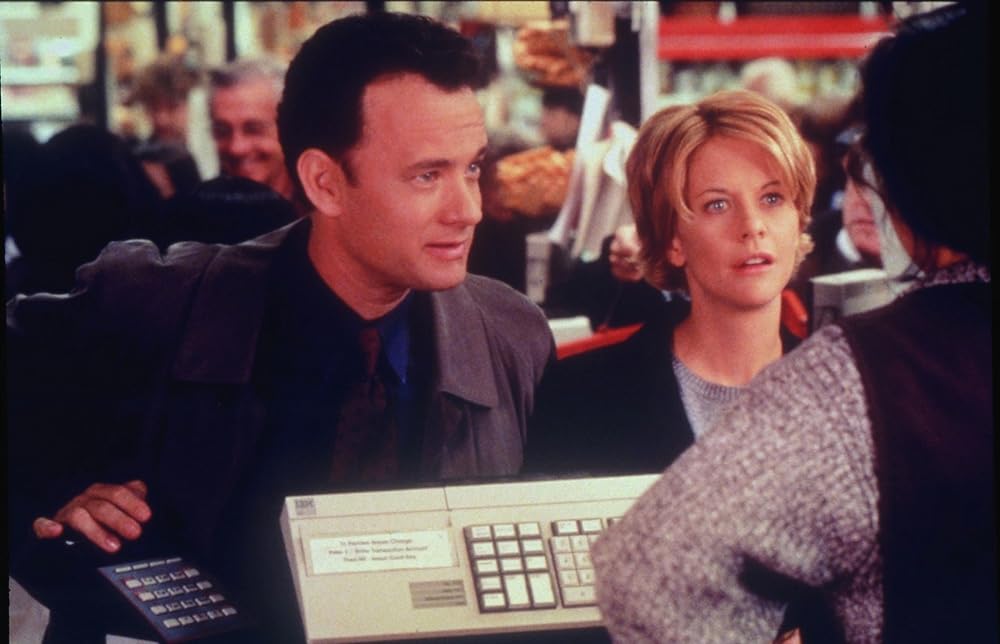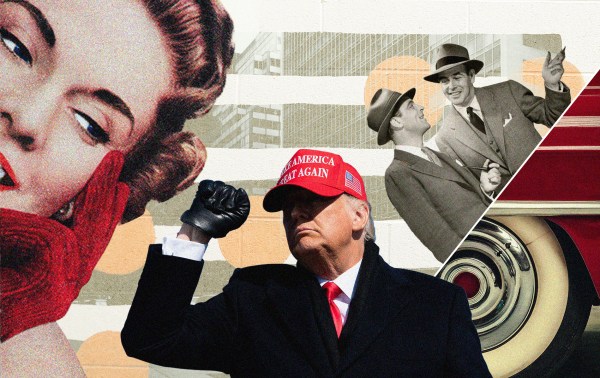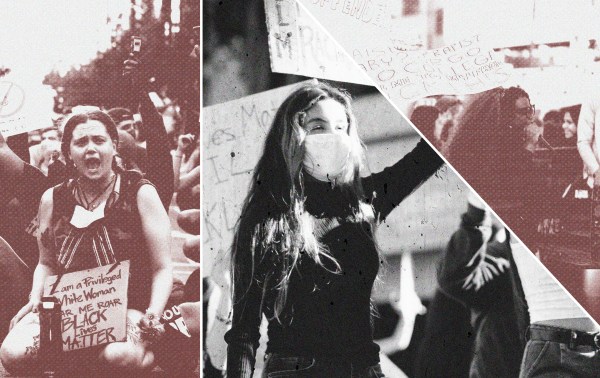Nora Ephron’s delightful You’ve Got Mail is funny without being vulgar, charming without being maudlin, and gentle but full of real joy. But the romantic comedy also contains a certain philosophic depth that may have been lost on viewers upon the film’s release in December of 1998, one worth revisiting 25 years later.
Starring Meg Ryan as bookseller Kathleen Kelly and Tom Hanks as businessman Joe Fox, the opening line of You’ve Got Mail asserts that the internet could lead to “the end of Western civilization as we know it.” Technological and economic change are wreaking havoc in late-’90s New York City. Beneath the surface of Kathleen and Joe’s romance is an earnest attempt to reckon with what it means to live a good life in the midst of such technological upheaval.
In this way, You’ve Got Mail reminded me of another great work celebrating an anniversary this year: Richard Weaver’s Ideas Have Consequences. Originally published 75 years ago in 1948, the book is considered one of the founding texts of the American intellectual conservative movement. And like You’ve Got Mail, Weaver also opens with a half-joking line: “This is another book about the dissolution of the West.”
Weaver was among the first philosophers to expound on a crisis in modernity. He argued that in denying absolute truth, modern ideologies therefore undermined morality and social cohesion. Civilization had declined because a succession of intellectual revolutions in the West—rationalism, empiricism, and scientism—uprooted the human person and left behind atomized individuals. Advanced technology only exacerbated this isolation.
Even if 50 years separate You’ve Got Mail from Ideas Have Consequences, the film in its own way addresses a similar predicament. Ephron did not write a treatise like Weaver, but she portrays some similar problems in modern life. Kathleen and Joe seek stability in a world of flux—and they find it not in rigid ideologies, but in their love for each other.
At the beginning of the movie, Kathleen Kelly is the ultimate romantic. She inherits a children’s bookstore called The Shop Around the Corner from her deceased mother. Her boyfriend, technophobe writer Frank Navasky (played by Greg Kinnear), declares at one point that Kathleen’s business possesses a “Jeffersonian purity to it that the city needs in order to maintain historical integrity.” Even as big box stores and internet shopping make mom-and-pop stores seem obsolete, Kathleen clings to the romance of her store—and the idea that she has built a refuge for those fleeing the cold, unfeeling bigness of the modern world.
Frank seems like the perfect guy for Kathleen, with his neo-Luddite devotion to typewriters, old radios, and other obsolete technology. But something about his reactionary posturing (at one point a character compares him to the Unabomber) leaves Kathleen unsatisfied. The countercultural pose he strikes is deeply conceited, and even if he truly believes the Industrial Revolution and its consequences have been a disaster for the human race, his holier-than-thou radicalism is unseemly.
Behind Frank’s back, Kathleen joins an internet chat room using the pseudonym “Shopgirl” and begins a lively correspondence with another anonymous user, “NY152.” The pair bond over their love of New York City, music, and, most importantly, books. Exchanging emails becomes the highlight of their days.
Unbeknownst to Kathleen, “NY152” is actually Joe Fox, the scion of a multimillionaire family running a chain of mega-bookstores, and his company is building a location not far from The Shop Around the Corner. With its cut-rate prices and fashionable coffee bar, Fox Books threatens to put Kathleen’s little store out of business.
Joe initially shows no remorse for the disruption his company causes Kathleen and her employees. He adopts an unrefined Machiavellianism, putting the bottom line before all else. As things look worse and worse for The Shop Around the Corner, “Shopgirl” asks “NY152” for business advice. Joe can only quote The Godfather and tells Kathleen to “go to the mattresses” fighting hard against her competitor. For him, “The Godfather is the I Ching. The Godfather is the sum of all wisdom. The Godfather is the answer to any question.” But just as Kathleen is not satisfied with her almost-reactionary lifestyle, Joe searches for something more than single-minded ambition in the marketplace.
As the competition between their businesses heats up, the protagonists eventually recognize each other in real life. Romance ensues, but before the couple can earn their happy ending they have to learn three lessons, each of which helps them make their peace with their modern-day circumstances.
First, reading books can change your life. Kathleen tells Joe at one point that watching her mother in their store was beautiful because she was doing more than selling products; the books she sold were “helping people become whoever they were going to turn out to be.” In his efforts to woo Kathleen, Joe reads her favorite novel, Pride and Prejudice. Jane Austen clearly works her magic on Joe, and slowly that romantic masterpiece replaces The Godfather as his primary point of reference. Ultimately, this kind of intentional reading helps both Kathleen and Joe understand what they truly want out of life.
Second, it’s necessary to embrace the potential for change. In the midst of the fierce competition with Fox Books, Kathleen’s surrogate-mother figure encourages her to “dare to imagine you can have a different life.” Stuck in an elevator with his vapid girlfriend at the time, Joe has a similar realization. That kind of imagination is extremely difficult to cultivate in the rush of modern life, but it’s essential for moving beyond the apparent limitations of our circumstances.
But perhaps most importantly—and still relevant to our times—Kathleen and Joe have to find a way to make the internet personal. Their online relationship begins as a form of escapism, but it quickly becomes something much more intense. “The odd thing about this form of communication is that you’re more likely to talk about nothing than something,” Kathleen writes to “NY152.” “But I just want to say that all this nothing has meant more to me than so many somethings.” After he understands he loves Kathleen, Joe has to find a way to translate the affection—even passion—in their emails into real life. He has to become a true friend to Kathleen.
In Ideas Have Consequences, Weaver expresses great skepticism about the role that media can play in saving the West. Attacking the claim “that the press, motion picture, and radio justify themselves by keeping people well informed turns out to be misleading,” Weaver asserts that the vulgarity and emotionalism inherent to these platforms will only make the crisis worse. They cannot really serve as “encouragement to meditation.” One trembles to think what Weaver would think of the internet.
Fortunately, You’ve Got Mail shows Richard Weaver’s prophecies of doom were at least partly wrong. Thoughtful viewers will see something of themselves in Kathleen and Joe. And in the end, Nora Ephron may teach them something a little counterrevolutionary about what it means to live well in modernity: Even amid atomizing market forces or technological changes, each of us can find ways to reassert the importance of the personal. The movie, contra Weaver, manages to be precisely the sort of “encouragement to meditation” we need.




Please note that we at The Dispatch hold ourselves, our work, and our commenters to a higher standard than other places on the internet. We welcome comments that foster genuine debate or discussion—including comments critical of us or our work—but responses that include ad hominem attacks on fellow Dispatch members or are intended to stoke fear and anger may be moderated.
With your membership, you only have the ability to comment on The Morning Dispatch articles. Consider upgrading to join the conversation everywhere.